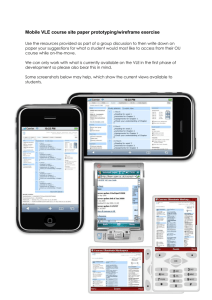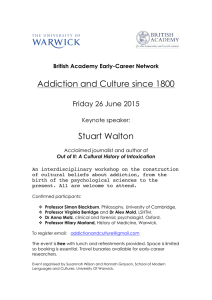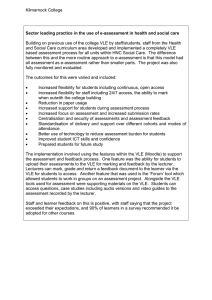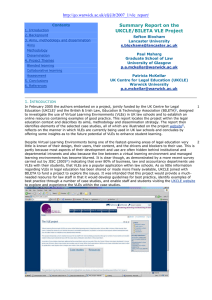A community of graduate students and researchers
advertisement
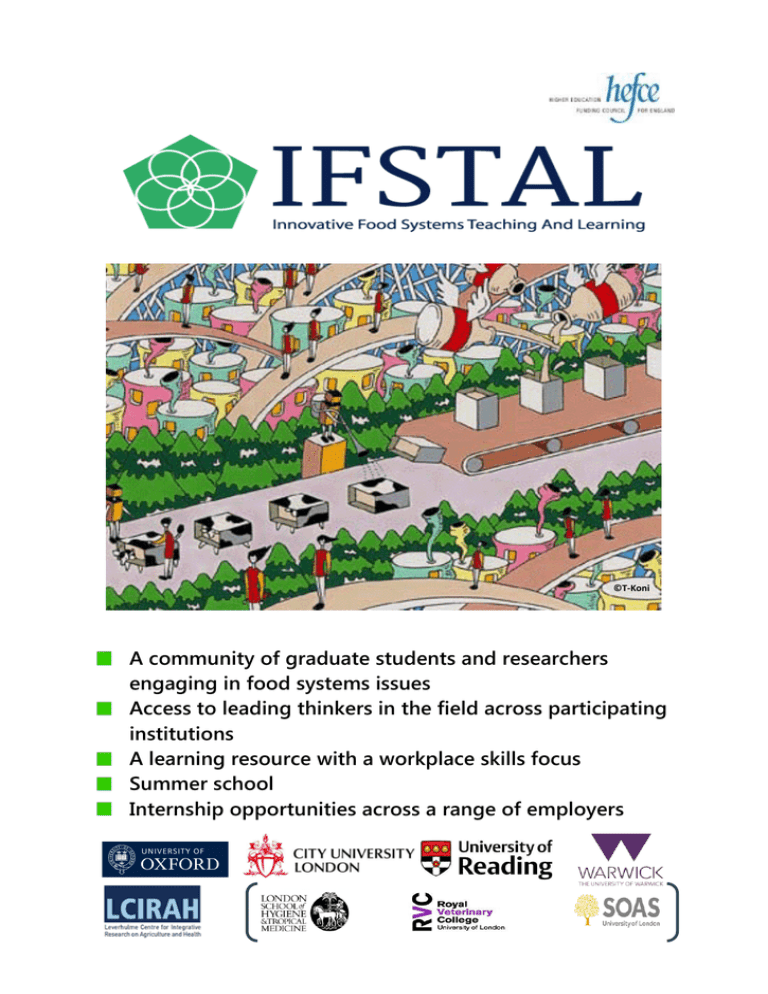
©T-Koni A community of graduate students and researchers engaging in food systems issues Access to leading thinkers in the field across participating institutions A learning resource with a workplace skills focus Summer school Internship opportunities across a range of employers WHAT IS IFSTAL? A set of interactive and interdisciplinary resources designed to improve post-graduate level knowledge and understanding of the food system, its problems and how we might go about dealing with them. A collaboration across institutions creating an interactive community of students and researchers from a wide range of disciplines and backgrounds. Seeks to help address the urgent need for a workforce more skilled in food systems thinking to help overcome the increasing and systemic challenges in food systems. WHAT IS THE FOOD SYSTEM? There is no single definitive ‘food system’ but a conceptual framework we like and use a lot is this one. It highlights the many ‘activities’ involved in producing and consuming food, as well as the different types of ‘outcomes’ this is linked to, and the feedback between these. HOW WILL IT WORK? During the academic year IFSTAL comprises live lectures and networking, with resources and interaction hosted on a ‘virtual learning environment’ (VLE). The VLE will host lots of resources: lecture clips, quizzes, vox pops, activities, blogs, wikis, and more. In the summer: a summer school, dissertation placements and links with internships. Some field trips or workshops if we can wangle it…. Each participating institution has a university-wide education coordinator and senior academic involved to develop IFSTAL, facilitate our growth as a community, and respond to your ideas and needs. CAN I JOIN? Are you a post-graduate student at any of the involved institutions (Oxford, Reading, Warwick, City, SOAS, RVC, LSHTM)? Then YES! Anyone studying a discipline where systems thinking is used (and we can think of a lot), should find this really helpful – it isn’t a discipline itself, but a way of approaching difficult ©Patrick Corrigan problems – of which sustainable food systems is one. WHAT IS REQUIRED FROM ME? As much or as little as you would like – the more you put in, the more you will get out of it. The VLE is designed to be used flexibly. This is not a course and does not carry any credits towards your MSc/MA/PhD. It is a community to draw from and contribute to, and we hope in the process it helps you develop new skills and networks. We’d love to develop IFSTAL further as a community – so contributions, ideas and resources are welcome. HOW TO JOIN Go to Weblearn and search for IFSTAL or go to http://warwick.ac.uk/foodsystems Join us at the inaugural lecture on the 22 October 2015 in L4, Chemistry and Science Concourse. To register for this go to http://warwick.ac.uk/foodsystems by 14 October. Alternatively, or if you have more questions, Your local IFSTAL Education Coordinator is Kelly Reed and can be contacted on IFSTALWarwick@Warwick.ac.uk For more information please check out our website www.ifstal.ac.uk


